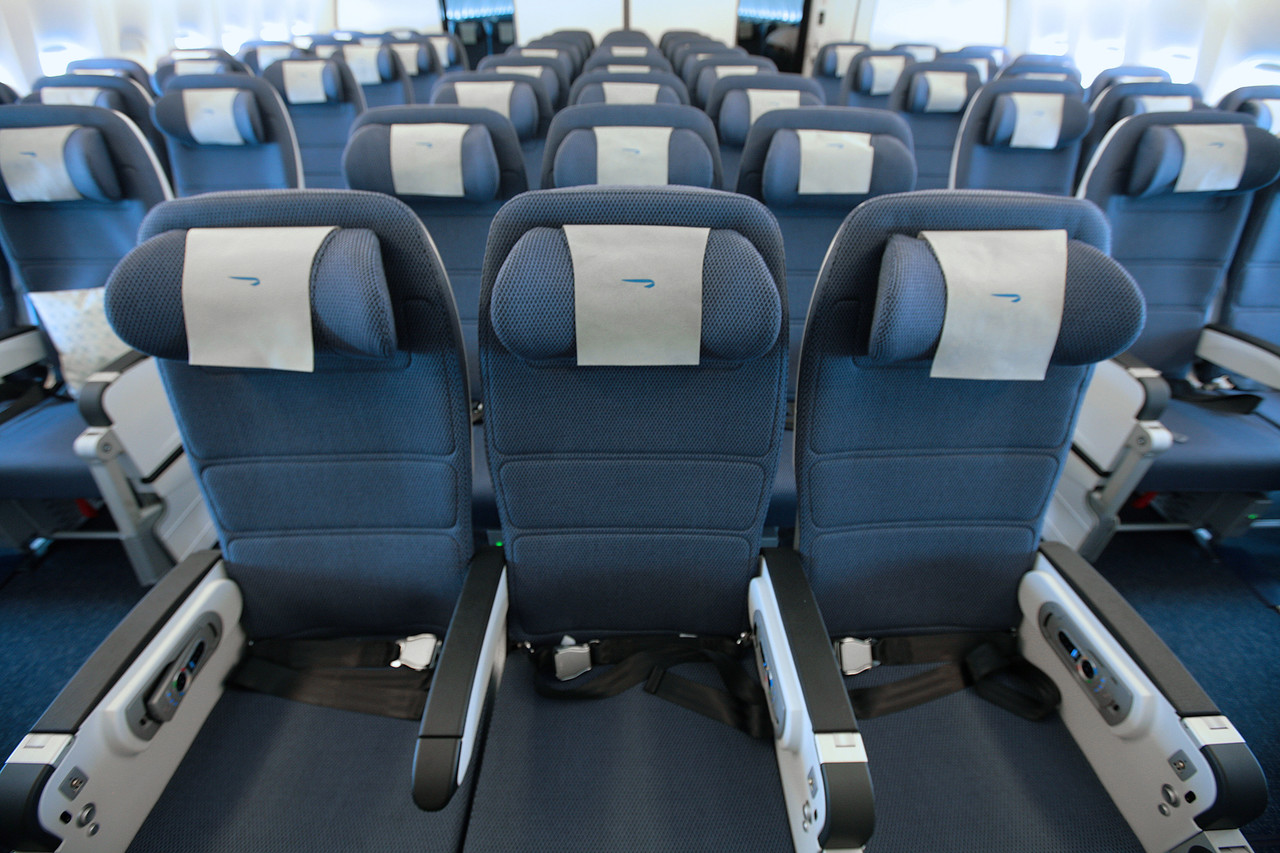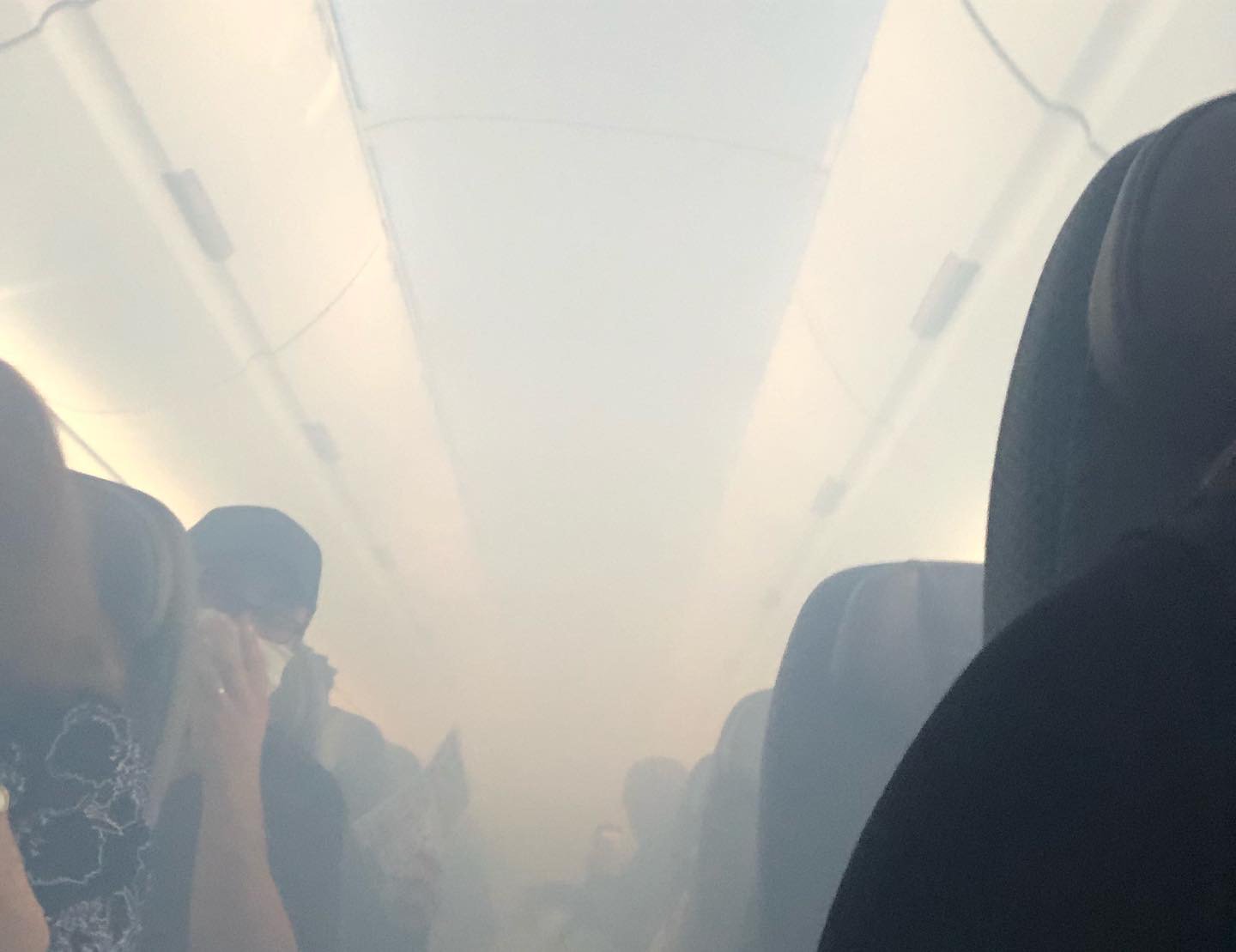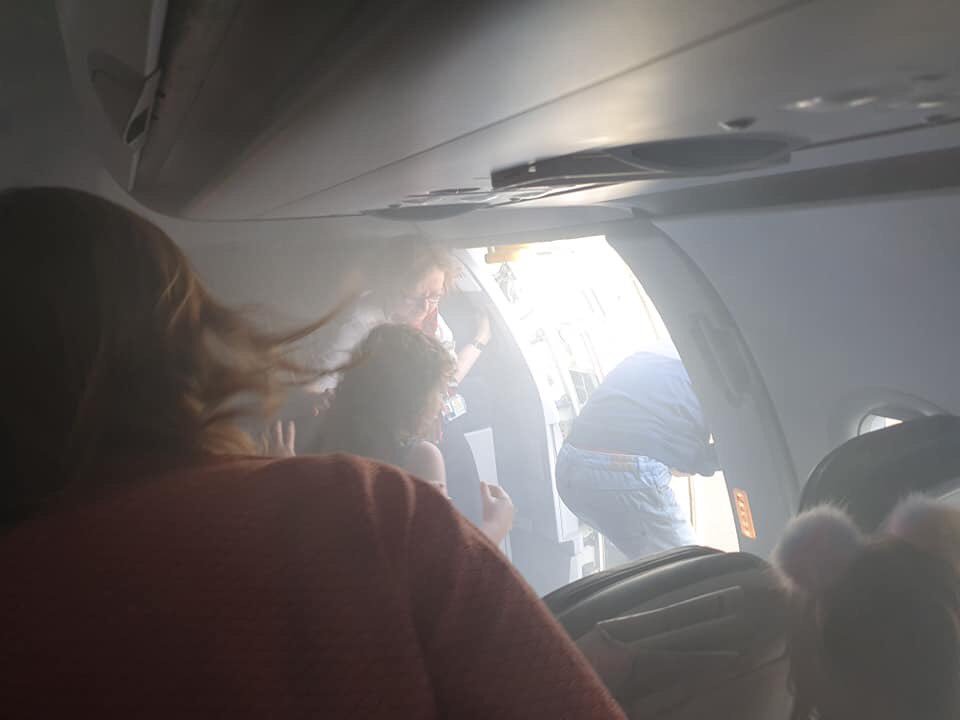
In the last 30-days, there have been at least 19 reported cases in which potentially toxic fumes have leaked into aircraft cabins and flight decks around the world. In the latest incident involving Spanish low-cost airline Vueling, passengers were evacuated onto the runway via emergency slides at Barcelona El Prat airport after thick smoke filled the cabin of their Airbus A320 aircraft on Sunday night.
A strangely similar incident occurred nearly 13,000km away in Honolulu, Hawaii just over three weeks ago when thick smoke again filled the cabin of a brand new Airbus A321. On that occasion, 192 passengers and crew managed to escape the smoke via emergency slides in less than 60-seconds once the plane had safely landed – but those on board had already been forced to breathe in the air for 20-minutes as the pilots made their approach into Honolulu.
The passengers and crew on board a British Airways operated Airbus A321 were also forced to breath in thick white smoke that filled the cabin at the start of August for over 20 minutes. An emergency evacuation was again ordered but only after the plane had been sat on the ground for what must have seemed like an eternity for those stuck on board.
Some of the passengers involved in that incident have raised their fears about the risk of being exposed to smoke for so long – they may well have reason to be fearful.
A growing body of evidence supports the conclusion that exposure to contaminated cabin air really could lead to serious long-term health problems – campaigners have coined the phrase aerotoxic syndrome as a catch-all condition that covers the myriad of health complaints sufferers have experienced.

“Independent expert evidence concludes that air onboard jet planes can contain a toxic mix of chemicals and compounds that potentially damage the nervous system and may lead to chronic irreversible health problems in susceptible individuals,” explains Howard Beckett, general secretary of legal services for the Unite trade union.
The union is currently supporting victims – many of whom are cabin crew – in 51 court cases against five UK-based airlines. The victims claim they have suffered irreversible neurological damage and chronic illness by being exposed to toxic cabin air contaminated with compounds like organophosphates and TCP.
Cabin crew are said to be most at risk because of their longterm low-level exposure to fume events.
Many of these cases have been caused by contaminated bleed air – whereby some air is ‘bled’ from the engine intake and fed via an airconditioning unit into the aircraft cabin. Campaigners say that this bleed air can become contaminated with toxic engine oil and lubricants. Other cases have involved faulty air conditioning units or electrical problems within the cabin.

Yet Beckett claims that rather than trying to fix the problem, the aviation industry including airlines and aircraft manufacturers have created a “cloak of silence” around the issue. Many airlines simply refer to these incidents as “odour events” and claim that, while potentially upsetting, no longterm health problems will occur.
Beckett will be addressing representatives from at least 31 airlines and other industry insiders at the International Aircraft Cabin Air Conference in London today and urging them to commit to doing more. There are already special filtration systems available that can be retrofitted to planes but only a very small number of airlines have said they’ll invest in the equipment.
In the UK, only low-cost carrier easyJet has said it will install the filters but it hasn’t provided any timeframe for how long this process might take.
In the meantime, the incidents keep on coming. The British Airways plane that was evacuated in Valencia had allegedly been involved in several other ‘fume events’ within the space of six months. And the reported cases are believed to be just the tip of the iceberg – many people might not even realise they are breathing in contaminated air.
Related
Mateusz Maszczynski honed his skills as an international flight attendant at the most prominent airline in the Middle East and has been flying ever since... most recently for a well known European airline. Matt is passionate about the aviation industry and has become an expert in passenger experience and human-centric stories. Always keeping an ear close to the ground, Matt's industry insights, analysis and news coverage is frequently relied upon by some of the biggest names in journalism.







